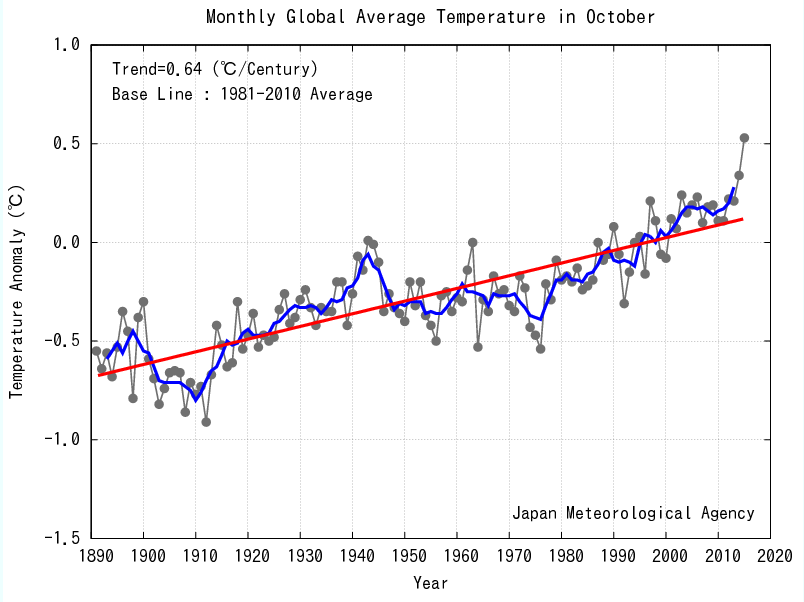October 2015 was the hottest since the 19th century

Anomalies are marked in gray - deviations from the average temperature;
Blue - 5-year moving average;
Red - long-term linear trend.
Throughout the history of well-documented weather observations since 1891, this October was the hottest of all October. These data, published November 16 by the Japanese Meteorological Agency, were then confirmed by NASA and the Goddard Space Research Institute.
The graph shows that last month not only became the hottest October in the entire history of observations, but also differs from the rest by a rather large amount. This leap, however, is not a record - similar leaps have occurred in the past. All these leaps, including the current one, are due to the El Nino effect, or Southern Oscillation.

12-month moving average of abnormal temperature fluctuations / NASA
El Nino - the temperature fluctuation of the surface water layer in the equatorial part of the Pacific Ocean, which greatly affects the climate. At the same time, the region of heated near-surface waters is shifting eastward, and the trade winds are weakening or even stopping. El Nino usually occurs with periods of 3-8 years.
These fluctuations have a particularly strong effect on the climate of South America, although the rest of the globe "feels" their effect. However, although El Nino happens constantly, and temperature jumps can be explained by its activity, the average temperature of the planet’s surface, however, is constantly increasing.

Average temperatures in October for the entire history of observations
NASA data clearly indicate an increase in average temperature. It is worth mentioning that to determine abnormal deviations from the average temperature, the agency uses average indicators not from the pre-industrial era, but the data for 1951-1980 - at that time, according to the general opinion, industrialization had already begun to affect the climate of the planet.
According to popular belief, global warming, or a gradual increase in the average temperature on Earth, is due to an increase in the amount of greenhouse gases in the atmosphere. This increase is associated with the industrial activity of man, and the resulting emissions of carbon dioxide and other gases.
